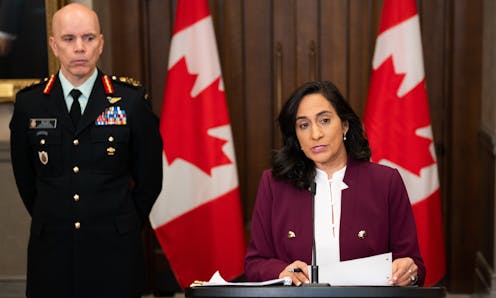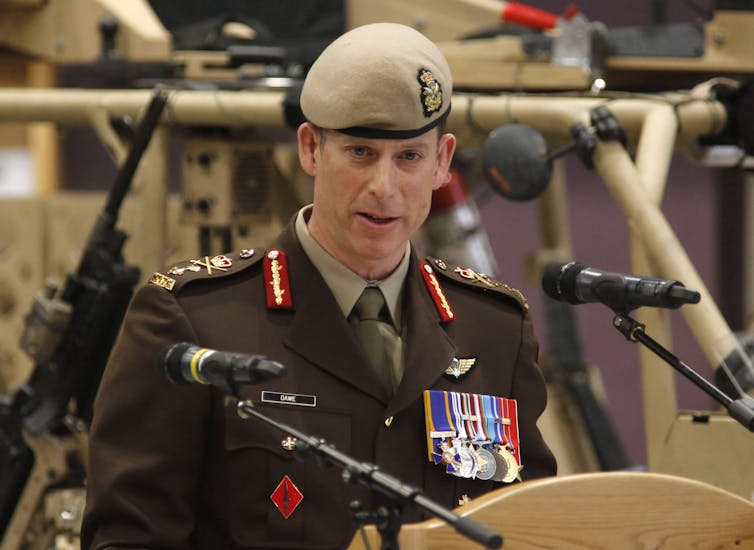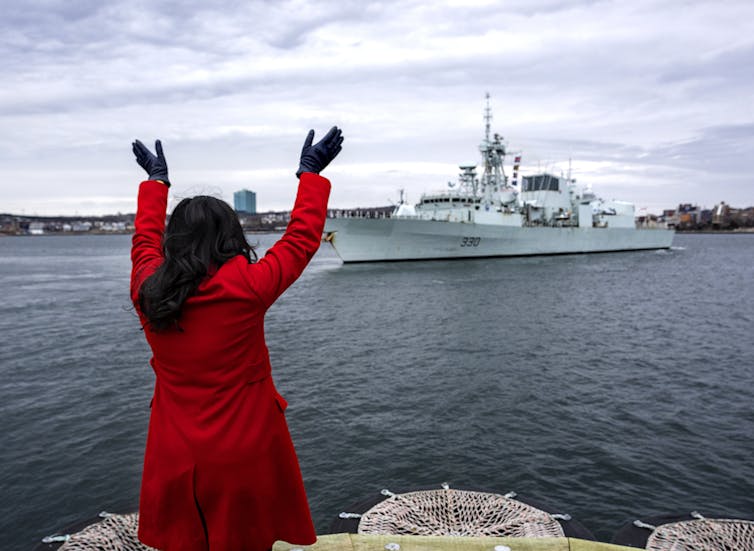
The Canadian Armed Forces (CAF) has a serious problem when it comes to sexual violence.
According to a recent report, the Canadian Special Operations Forces Command (CANSOFCOM), an elite branch of the Canadian Armed Forces, has exposed a troubling culture of reticence and double standards when it comes to addressing misconduct.
According to internal reviews conducted for senior leadership, certain elite groups within the command enjoy immunity, are shielded from accountability and are protected from the consequences of serious issues of misconduct.
Take for example the sexual assault conviction of Maj. Jonathan Hamilton involving retired Logistics Officer Annalise Schamuhn, the wife of retired special forces Maj. Kevin Schamuhn, who both had the courage to speak publicly about their story.
A judge found Hamilton guilty on six criminal counts in 2017, including unlawfully entering the Schamuhn residence and sexually assaulting Annalise Schamuhn on two separate occasions. Prior to sentencing, Maj.-Gen. Peter Dawe, a deputy commander in Kevin Schamuhn’s chain of command, submitted letters to the court in support of Hamilton.
In a CBC interview, Kevin Schamuhn said that when he confronted Dawe about it, Dawe admitted wanting to influence Hamilton’s sentence because he believed Hamilton was a “good guy” who deserved leniency.
When news of Dawe’s actions came to light four years later, he was relieved of his command and placed on paid leave.
But not long after, Dawe was quietly reinstated and appointed to help lead the CAF response to sexual misconduct reviews, further calling into question the integrity of the CAF complaint process and eroding trust within the ranks.

Untouchable soldiers
It’s clear from this case and others that CANSOFCOM promotes a repressive culture whereby the offender is often supported while the victim is forgotten or blamed.
Speaking up against injustice in the CAF can lead to harsh repercussions, producing an environment of secrets, stagnation and continuing consequences. CANSOFCOM’s mission statement includes the “relentless pursuit of excellence” but that doesn’t seem to apply when it comes to workplace violence.
This toxic culture is a longstanding problem. The Canadian government set aside approximately $800 million in 2019 to resolve class-action sexual assault lawsuits launched by serving and retired military personnel. In fact, more than a quarter of female members in the CAF have reported sexual assault.
The CAF’s inability to exercise effective leadership and maintain focus is a serious obstacle to bringing about lasting change.
Defence Minister Anita Anand has pledged to “take on” bad behaviour, but it’s clear that promise has yet to be fulfilled. In 2021, Prime Minister Justin Trudeau stated that the “CAF just doesn’t get it” when it comes to sexual misconduct in its ranks, but he has since been mute on the subject.
Cultural improvements have yet to be achieved, even after Anand’s 2022 public apology to a CAF member over abuse in the ranks, the transfer of sexual misconduct cases to civilian tribunals and the creation of the CAF’s Sexual Misconduct Response Centre and Operation HONOUR that aims to combat sexual misconduct. That initiative still appears to be struggling to execute its mission.

End the silence
It’s time to end the silence. Trudeau, Anand and CAF leaders have the opportunity to lead the way when it comes to addressing issues of workplace bullying, harassment and sexual abuse in the organization. So why aren’t they?
These issues constitute real and immediate threats to our national security because they fracture trust and safety among those tasked with protecting Canada. These threats are coming from within the ranks. The endemic CAF culture of victim blaming falls short of the basic principles of decency, honour and justice — and it’s time for real action.

A multi-faceted strategy is needed to include victim aid, policy change, leadership responsibility and education like the one proposed by Marie Deschamps, the former Supreme Court justice who was appointed to conduct one of the many reviews into sexual misconduct in the CAF.
To eradicate sexual assault, the CAF must commit to transformative leadership and emphasize the dignity, respect and equality of those who serve — not those who offend.
The principle of “see something, say something” must not lead to negative consequences for the victim. CAF members are asked to serve and sacrifice on the battlefield, so why can’t they be protected from each other?
Read more: Sexual misconduct, abuse of power, adultery and secrecy: What I witnessed in Canada’s military
Public health issue
Workplace violence is a public health issue. The consequences of bullying, harassment and sexualized violence at work have serious impacts on the physical and mental health of victims.
Read more: Workplace bullying should be treated as a public health issue
Meaningful and effective intervention is a necessary step in combating these issues, but to do so effectively, change needs to start at the top.
Perhaps it’s time for Dr. Theresa Tam, Canada’s chief public health officer, to take on workplace violence. Tam is someone who gets things done. During the COVID-19 pandemic, she led Canada’s public health response and ensured widespread public health measures were put in place to save lives.
The mandate of the Public Health Agency of Canada includes identifying health risks to Canadians — and workplace violence falls squarely within this purview as a threat to the health and well-being of all Canadians.
Jason Walker is affiliated with the Liberal Party of Canada (Member).
This article was originally published on The Conversation. Read the original article.







